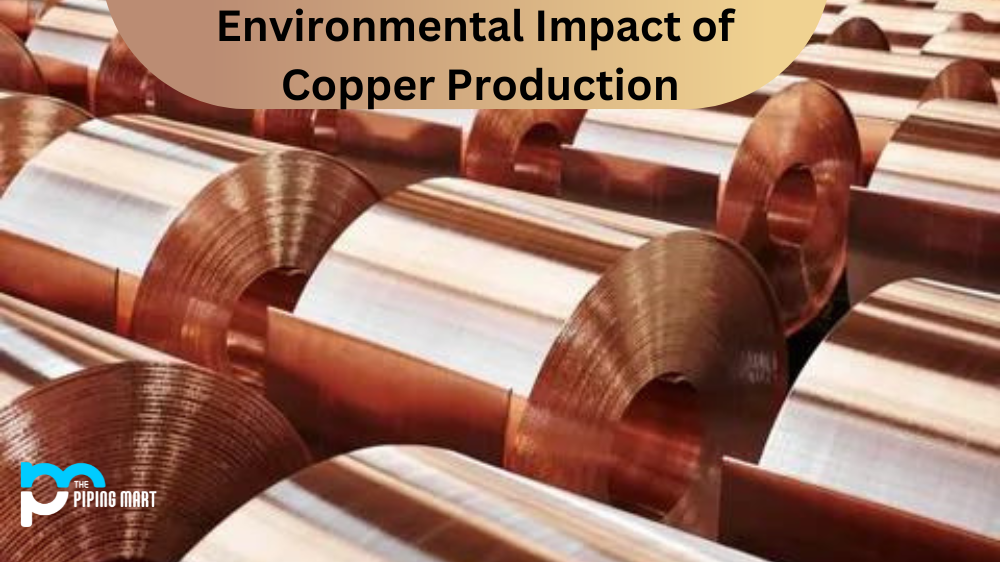Copper has been a popular metal for millennia, used for everything from coins to electrical wiring. Copper is still in high demand, but its production often drops a heavy environmental burden. The mining and processing of copper can generate a variety of adverse environmental impacts, from soil contamination to acid rain. In this blog, we will explore the ecological implications of copper production, including its effects on air, water, and soil quality. We will also examine how the industry is working to reduce its environmental footprint.
Air Quality
One significant environmental consequence of copper mining is the release of sulfur dioxide and other pollutants into the air. For example, some mining practices rely on explosives and heavy machinery, which can significantly contribute to air pollution. Sulfur dioxide emissions can also lead to acid rain, negatively impacting water quality. In addition, copper mines are often located in remote areas, which can increase the environmental impact of air pollution as transportation is required to move the extracted minerals.
Water Quality
Copper mining and processing are amongst the most water-intensive industrial activities, with a high risk of groundwater contamination. Copper processing facilities produce large volumes of wastewater rich in heavy metals and must be treated to remove contaminants before release. Furthermore, leaching, often used during copper extraction, can release toxic substances, including arsenic, lead, mercury, and cyanide, which water sources can pick up.
Soil Quality
The soil surrounding copper mines is often stripped of vegetation, leading to an increase in soil erosion and a decrease in soil fertility. Acidification of the earth, caused by acid rain and leaching, can damage plant roots and inhibit their ability to absorb essential nutrients from the ground. Furthermore, metallic residues from mining activities can remain long because they do not break down naturally, posing a long-term contamination risk to soil ecosystems.
Reducing Environmental Footprint
Although the copper industry can have serious environmental consequences, efforts are being made to reduce its impact. Copper mining companies have started implementing conservation measures, such as using renewable energy sources, including wind and solar, to reduce energy consumption and greenhouse gas emissions. Copper mines are also researching implementing advanced filtration systems to reduce wastewater discharge and contamination. Moreover, some companies are conducting land restoration activities in degraded areas to reduce the environmental impact caused by mining activities.
Conclusion
Copper is a significant metal with diverse applications in our daily lives. However, copper production can also have severe environmental impacts on air, water, and soil quality. While copper mining is a necessary step in our modern economy, the industry must take responsibility for minimizing the environmental impact of its operations. The copper industry can significantly reduce its environmental burden through improved technology, regulations, and conservation efforts. As consumers, we can play our part by choosing products made from recycled copper and supporting companies that prioritize sustainability.
Sakshee is a talented blogger, with a particular focus on the Business and Metal Industry. She is passionate about sharing her insights on various metal products and helping professionals to make a better decisions.




